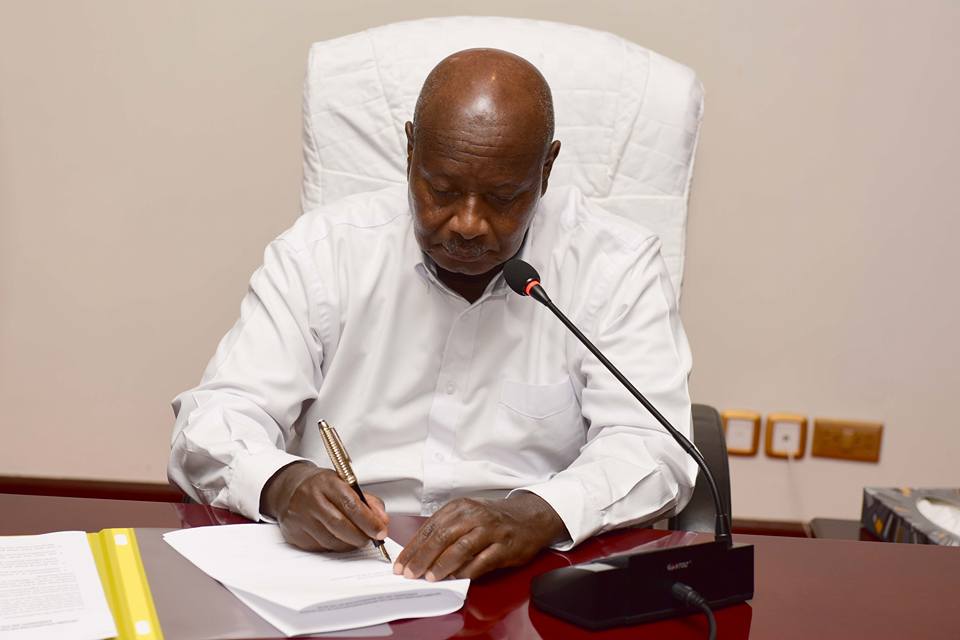President Yoweri Museveni has issued a bold statement denouncing the role of foreign aid and loans in achieving the desired social-economic transformation of the country.
In his communication on August 9, 2023, he emphasized the importance of such assistance being designed and executed by individuals loyal to the nation, rather than acting as neo-colonial agents.
However, he asserted that these external financial resources were not the decisive factors for driving the desired transformation, and in some cases, were contributing to distortion and stunted growth, as evident in many African nations.
The President pointed to the ongoing crises in several African countries, such as Guinea, Mali, Burkina Faso, and others, despite receiving substantial grants and loans.
“If foreign aid and loans, are a source of social-economic transformation, why the present growing crisis of even security and stability in Africa? Look at Guinnea-Conakry, Mali, Burkina-Faso, Niger, Central African Republic, DRC, Boko Haram in Nigeria, Somalia, Mozambique, etc. Most of these Countries, have been getting those grants and loans.” he said
He questioned the efficacy of such aid packages, highlighting instances where funds were misallocated or misused. One notable example was the Ministry of Agriculture, Animal Industry, and Fisheries, where borrowed funds of $800 million over a decade failed to improve crucial infrastructure or acquire necessary equipment.
The President criticized the involvement of neo-colonial interests within the country’s administration that led to agreements and loans that did not contribute to true economic growth.
“A total of USD 800million had been borrowed over a period of ten years, but that Ministry did not have zonal diagnostic labs and Research centres, did not repair the mechanization centres and did not buy the mechanization equipment like combine harvesters or even tractors, no irrigation equipment for farmers, no value addition equipment, etc. Much of that money was spent on seminars etc.; yet, those are the basic requirements of that Ministry, if it is to assist in the struggle for Social- economic transformation. Therefore, most of the borrowing, has been having no value addition to our transformation journey.” he added
He further stated; “the World Bank and other external actors, have no capacity to interrupt our transformation journey. It is actually the internal weaknesses, that delay our forward march and that must and will be crushed. The internal weaknesses are two: the neo-colonial misplanners that have been historically manning the civil service and also present in the political class on account of the neo-colonial social sciences taught in the educational system; and the corrupt parasites in the same groups that delay the operations of the private sector or demand bribes from them.”10000
He highlighted his directive from 2017, preventing further loan agreements without his approval. He emphasized that Uganda’s journey toward social-economic transformation was primarily driven by internal factors, including a patriotic populace, a strong army, a thriving private sector, essential infrastructure, and access to various markets.
He contended that while some external support for social infrastructure (health and education) was appreciated, it was insufficient if it did not address core economic challenges.
The President identified three key issues facing underdeveloped economies: relying solely on raw material production, neglecting vital economic infrastructure like electricity and transportation, and failing to integrate non-money-based economies into the broader financial system.
The President concluded by rejecting the idea that external aid and loans held the power to interrupt Uganda’s transformation journey.
“the World Bank and other external actors, have no capacity to interrupt our transformation journey. It is actually the internal weaknesses, that delay our forward march and that must and will be crushed. The internal weaknesses are two: the neo-colonial misplanners that have been historically manning the civil service and also present in the political class on account of the neo-colonial social sciences taught in the educational system; and the corrupt parasites in the same groups that delay the operations of the private sector or demand bribes from them.” he added
He acknowledged the presence of Western supporters but cautioned against thoughtless actions that could undermine global efforts against terrorism and various chauvinistic ideologies.
The President’s stance underscores the country’s push to harness internal resources and address long-standing structural challenges for sustainable growth and development.





